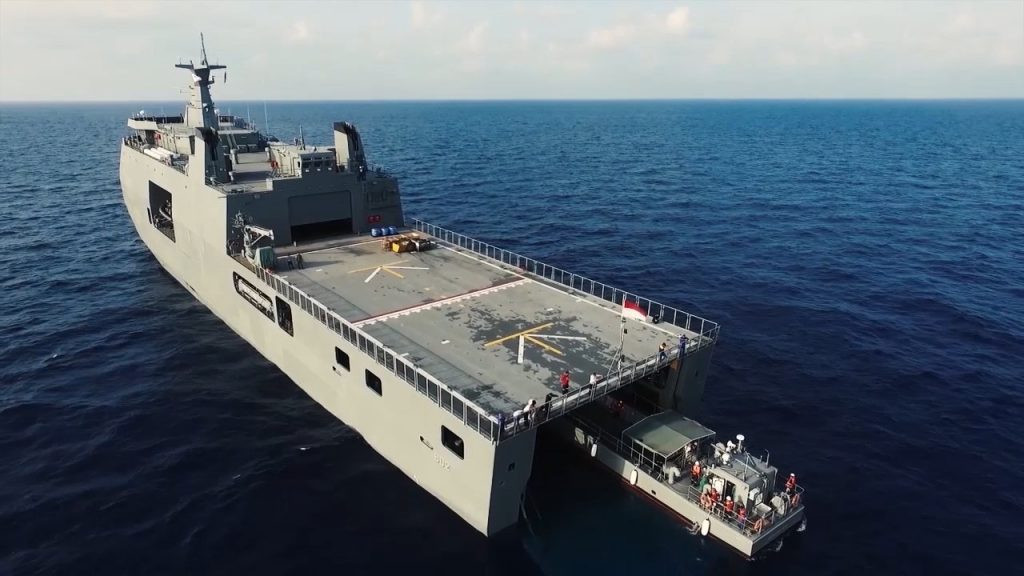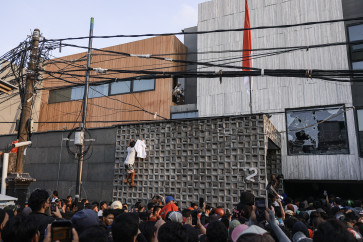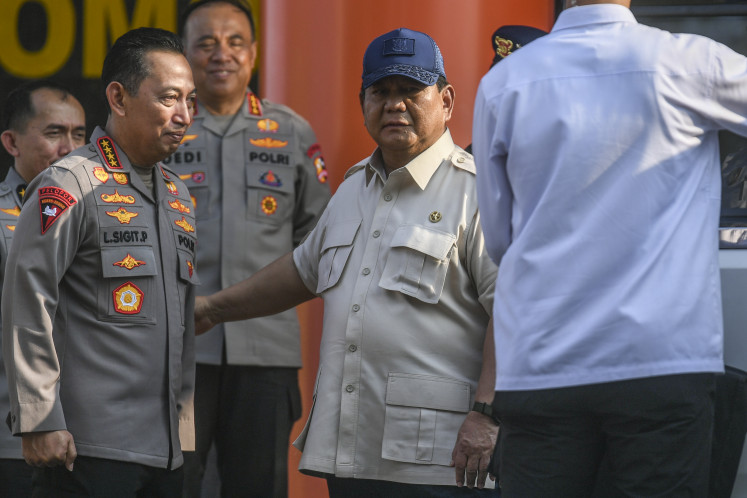Popular Reads
Top Results
Can't find what you're looking for?
View all search resultsPopular Reads
Top Results
Can't find what you're looking for?
View all search resultsIndonesian defense industry: Bed of roses or of nails?
Law No.16/2012 on the national defense industry stipulates that each major procurement project in the sector should be supported by packages of offsets, local content and transfers of technology.
Change text size
Gift Premium Articles
to Anyone
O
n Jan. 3, president director of PT Len Industri and the Indonesian-state-owned defense industry holding, DEFEND ID Bobby Rasyidin said the holding had recorded a total of Rp 83 trillion (US$5.3 billion) from on-hand contracts throughout 2022, up by 60 percent compared with 2021, mostly through the activities of arms producer PT Pindad, aircraft maker PT Dirgantara Indonesia (DI) and explosive producer PT Dahana.
DEFEND ID, according to Bobby, aims to continue its commitment to generating significant impact for the local defense industry, as well as supporting the national economy. Nevertheless, while the overall amount could portray a good performance by the Indonesian defense industry, including from the private sector, the road to the objectives set by President Joko “Jokowi” Widodo, to rank within the top 50 of global defense equipment suppliers, is long, winding and bumpy.
Indeed, some observers believe the $5.3 billion contract value achieved last year does not only include defense and security equipment. For example, companies such as PT Dahana and PT DI have recorded several major commercial contracts. Moreover, while the domestic defense industry representatives have lauded the signing of 30 memorandums of understanding (MoUs) with foreign partners during the latest Indo Defense Exhibition last November, the agreements are by no means contracts, as MoUs are generally not legally binding.
Nevertheless, the trend is encouraging and 2023 could be the year of DEFEND ID, and by extension for the whole domestic defense industry, for several reasons.
First, the ongoing modernization of the Indonesian Military (TNI) is steadily progressing. While the Minimum Essential Force (MEF) plan will not be achieved by its deadline in 2024, several major procurement programs are still under way and more should come into force by the end of 2023. From this perspective, opportunities are on the table for the domestic defense industry, as well as for DEFEND ID. It should also be noted that the evolution of the security context at regional and global levels should also lead Indonesian decision-makers to accelerate this modernization. As a matter of fact, the impact of the war in Ukraine and the increasing territorial tensions and risk of armed confrontation in the Indo Pacific region should persuade the Indonesian government to make sure the TNI is well equipped and trained to deter potential aggressors and protect the country’s territorial integrity and sovereignty.
Second, the upcoming procurement contracts should help the local defense industry to continue its growth and to modernize itself, while reaching greater industrial maturity through the development of capacities and capabilities.
Indeed, Law No.16/2012 on the national defense industry stipulates that each major procurement project in the sector should be supported by packages of offsets, local content and transfers of technology. Interestingly, the upcoming defense acquisitions will include such packages.
For example, Boeing has stated that the acquisition by Indonesia of F-15EX combat aircraft will encompass offsets. Similar prospects also exist with the procurement of Dassault Rafale multirole combat aircraft, as the contract for the first six of them has come into force.
Lastly, the procurement plan by the Navy (TNI AL) of two Naval Group Scorpene-class submarines will allow state shipbuilder PT PAL to increase both its production capabilities and capacities, as the French shipyards are committed to building all the submarines in Indonesia.
As consequence, Surabaya-based PT PAL will obtain one third of the contract value, allowing it to create hundreds of jobs for local people.
Third, cooperation between the public and private sectors in defense matters could increase. It is essential for DEFEND ID to be able to vet and cooperate with local small and medium enterprises. By doing so, the benefits of defense equipment procurement could also be shared with the private sector, who could act as suppliers and contractors for DEFEND ID and its subsidiaries.
It is important to note that according to the National Private Defense Industry Association (Pinhantanas), most private defense companies have not received any orders, including from the government, since 2019. In addition, the main articles of defense equipment that have been produced by the private sector have not managed to reach the mass production phase, due to uncertainties in terms of sales, as well as limited budget for research and development.
From this perspective, the benefits gathered in terms of industrial maturity from the cooperation between private and public defense players will also reach SMEs and, in fine, support the top priority of President Jokowi to create and develop superior and competitive human resources, which would help to achieve the goal of making Indonesia among the world’s top-five economies in 2045.
Additionally, the public private partnership in the domestic defense industry would not only support relevant actors in the sector, but could also increase self-reliance on the overall ecosystem, as desired by the government.
All in all, the future could be bright for DEFEND ID and the overall Indonesian defense industry ecosystem. Regardless, the development of the Indonesian defense industry will be determined by capacities and constraints, be they related to industry, human resources, political will or budget.
With elections drawing near, policymakers may shift focus to political campaigns, at the expense of the country’s defense modernization plan, hence, the domestic defense industry. Inevitably, there will be challenges awaiting DEFEND ID and SMEs in the defense sector this year.
While the prospect of the national defense industry performing positively remains there, it will depend on the commitment of key decision-makers and how they carefully decide, assess and prioritize more advantageous contracts for both the sector and the TNI as the user.
***
Anastasia Febiola S. is a research coordinator and head of defense at PT Semar Sentinel Indonesia, where Karl Gading Sayudha is a research analyst. The views expressed are their own










